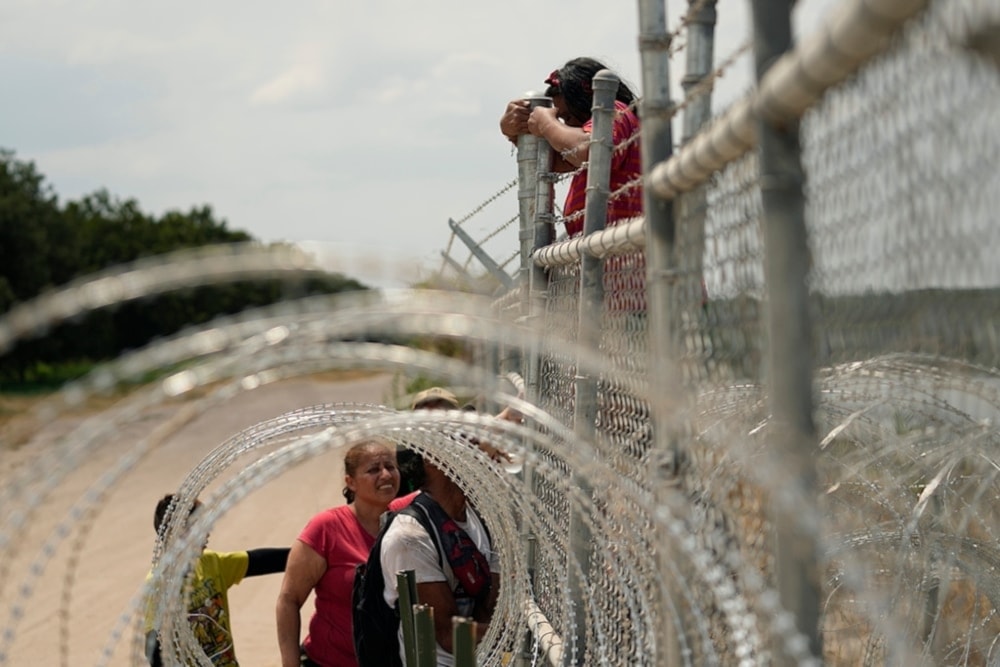US Supreme Court puts temporary brakes on Texas immigration law
The Supreme Court has suspended the implementation of the Texas immigration law until March 13 as it examines the case.
-

Migrants who crossed the Rio Grande from Mexico into the US climbed a fence with barbed wire and concertina wire in 2023, in Eagle Pass, Texas. (AP)
The US Supreme Court has temporarily halted a Texas law, Senate Bill 4 (SB 4), allowing state police to arrest and deport migrants crossing illegally from Mexico.
The law has been entangled in legal battles between the Biden administration and the Republican-controlled Texas government. The Supreme Court has suspended its implementation until March 13 as it examines the case. Notably, immigration issues, including law enforcement, fall under the jurisdiction of the federal government in the United States, rather than individual states.
The Texas law aimed to categorize illegal border crossing as a state offense, a designation deemed unconstitutional by the federal Department of Justice. Amid a tense presidential election year, Republicans attribute the recent surge in migrant numbers to Biden.
Although Democrats have attempted to push comprehensive immigration reforms, these efforts, linked to aid for Ukraine, were thwarted by Congressional Republicans. The White House accused Donald Trump's party, which seeks to challenge Biden in November, of intentionally undermining bipartisan efforts to address the issue.
Trump says will deport migrants using local police if elected
During an interview with Fox News' Hannity on March 1, former US president and GOP frontrunner Donald Trump declared that he would deploy local police to enforce mass deportation of undocumented migrants if he's elected.
He vowed to launch the "largest deportation operation in American history," during a statement he gave while visiting the US-Mexico border the same day as President Joe Biden's visit.
"We have to deport a lot of people, and they have to start immediately," he said, adding that he would provide "immunity" to police "to give the job they have to do," as the officers would know who the migrants are.
"It's going to be the local police that are going to turn them over, and we're going to have to move them back to their country," he continued.
Tensions between Texan and US authorities have been on the rise lately, especially since a Supreme Court ruling on January 22 allowed federal agents to remove razor wire placed along the border.
Despite the legal ruling, Texas remains committed to increasing border security measures, with state Governor Greg Abbott declaring that Texas is confronting an "invasion" and cited the state's "constitutional authority to defend and protect itself." These developments have fueled speculation about the possibility of Texas becoming an independent state.
Read more: Migrant crisis pushing Texans to consider 'Texit': Newsweek

 3 Min Read
3 Min Read








